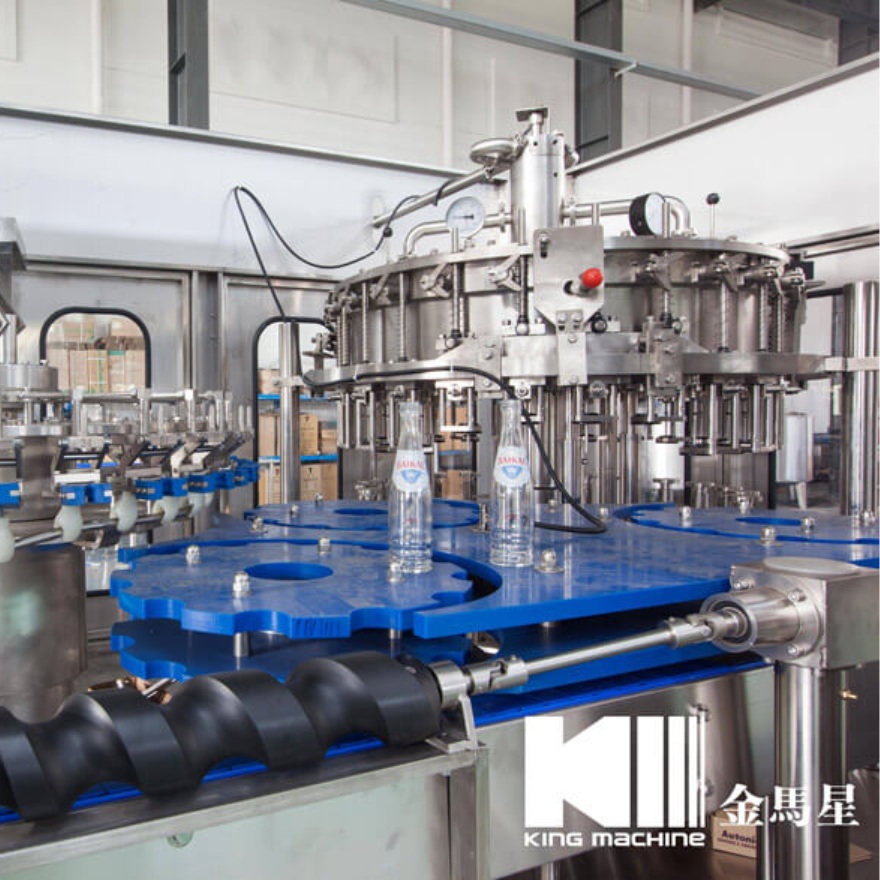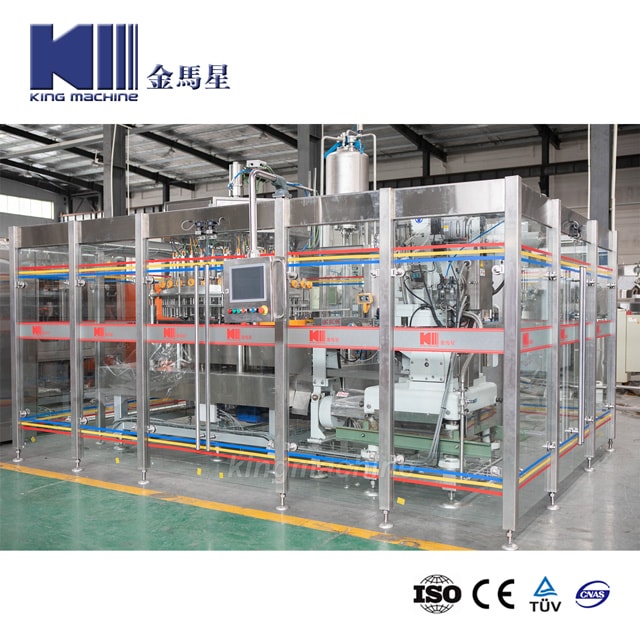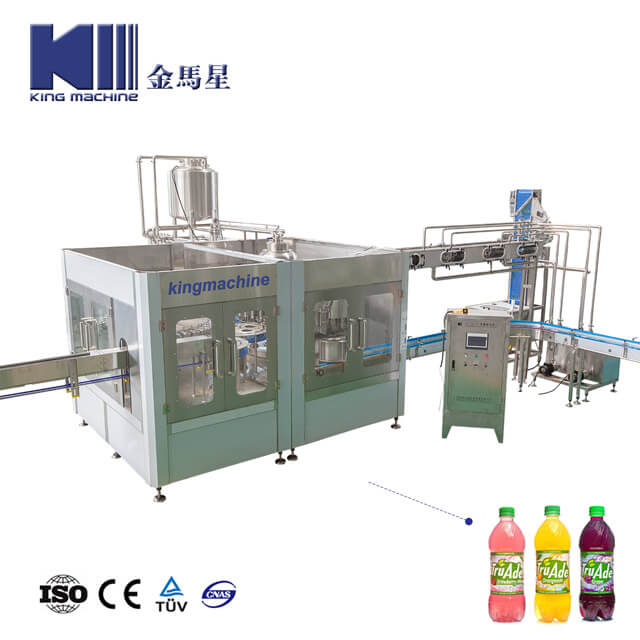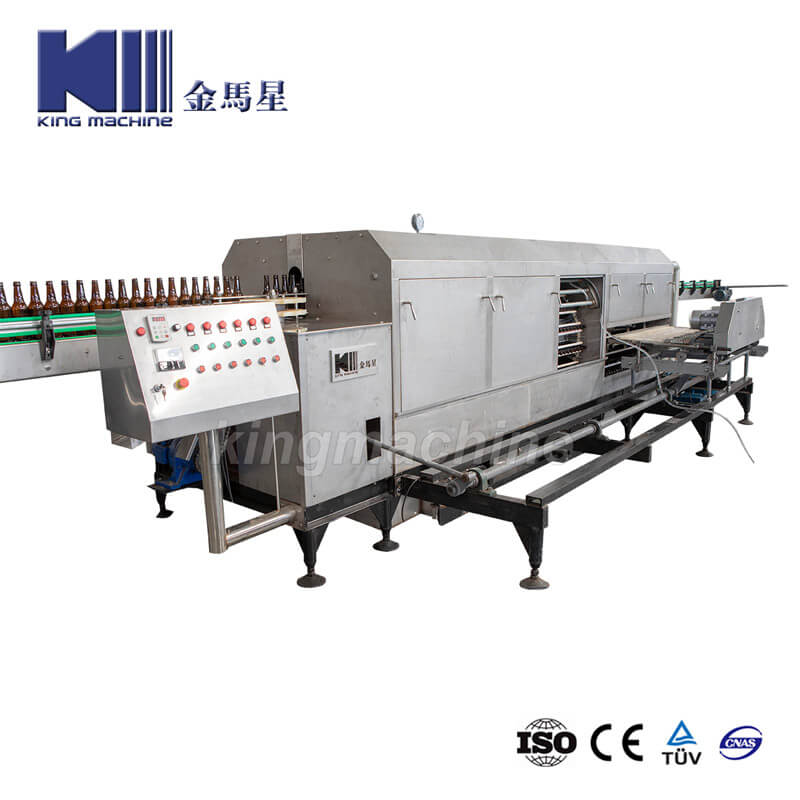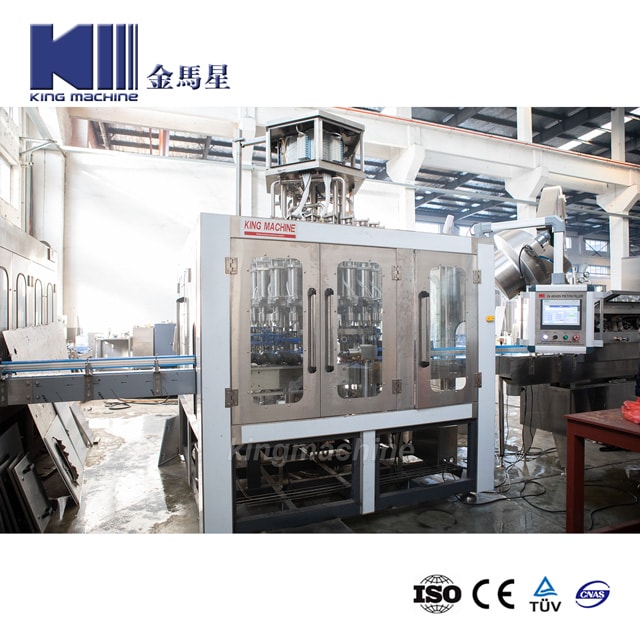In today’s highly competitive beverage industry, manufacturers must balance efficiency, product quality, hygiene, and flexibility. As consumer preferences shift toward more diverse beverage types—carbonated soft drinks, juices, flavored water, functional beverages, dairy drinks, and even low-viscosity liquid foods—production lines must adapt rapidly while maintaining accuracy and safety.
At the heart of any beverage production line is the filling machine. The technology behind beverage filling equipment has advanced dramatically, integrating automation, real-time monitoring, hygienic engineering, and precision control systems. Choosing the right machine requires more than checking basic specifications—it demands a deep understanding of the key features that drive consistency, reliability, and high performance.
This article covers the most important features to look for when selecting a modern beverage filling machine, helping you make the best investment judgment for your business.
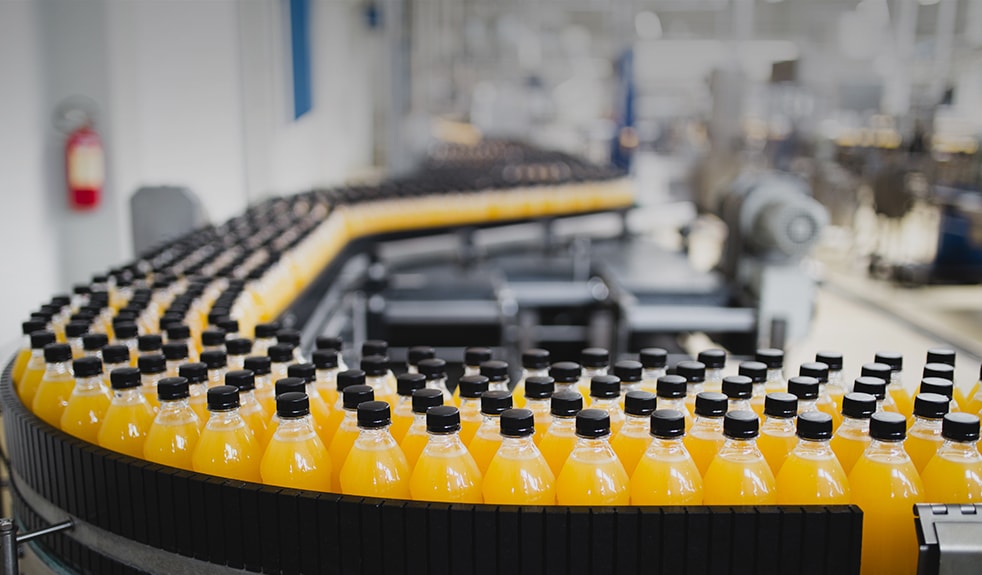
1.Advanced Control Systems for Smarter Operation
One of the most significant advancements in modern beverage filling machines is intelligent control. A machine equipped with advanced digital systems ensures stable operation, easy control, and real-time feedback—crucial for beverage producers aiming to minimize downtime.
Touchscreen HMI (Human-Machine Interface)
Intuitive touchscreen control enables operators to manage complex processes with minimal training. This interface typically offers:
Real-time data monitoring of pressure, temperature, fill levels, CO₂ content (for CSD), and flow rate
Easy adjustment of filling parameters for different beverages and bottle sizes
Visual alarm diagnostics and troubleshooting guides
Recipe management for quick product changeovers
Touchscreen HMIs reduce human error and allow operators to make adjustments instantly, resulting in higher accuracy and system transparency.
PLC and Smart Automation
A high-quality PLC ensures stable and reliable machine performance. Modern beverage filling machines often include:
Automatic detection of bottle presence
Synchronization of filling, capping, and conveying processes
Interlocked safety systems
Remote monitoring, IoT connectivity, and performance data logging
These systems support predictive maintenance, simplify troubleshooting, and increase overall efficiency.
2. High-Precision Servo Motion Control
Servo systems have become standard in advanced beverage filling machinery due to their precision and energy efficiency. They control the movement of critical components such as filling valves, capping heads, and conveyors, ensuring stable operation at high production speeds.
Benefits of Servo-Driven Design
High accuracy: Ensures every filling cycle is consistent
Faster response: Smooth acceleration and deceleration without mechanical shock
Energy efficiency: Consumes less energy compared to traditional mechanical drive systems
Reduced wear: Lower mechanical fatigue extends machine lifespan
Servo motors are particularly beneficial for premium bottled beverages, carbonated drinks, and products that require highly precise fill levels.
3. Filling Accuracy and Consistency
Accuracy is one of the most important criteria in beverage production. Overfilling wastes product, underfilling violates regulations and damages your brand. A modern machine must deliver precise and consistent filling under all operating conditions.
Flowmeter or Counter-Pressure Filling
Depending on your beverage type, modern machines may utilize:
Electromagnetic flowmeters for water and clear beverages
Mass flowmeters for viscous liquids
Counter-pressure filling systems for carbonated soft drinks
Vacuum filling for hot-filled or still beverages
These systems ensure consistent fill levels despite fluctuations in temperature, pressure, or carbonation.
Anti-Foam and Anti-Drip Features
To avoid bottle overflow and maintain product cleanliness, advanced filling valves incorporate:
Drip-free valve design
Controlled foaming suppression for CSD and beer
Smooth product flow paths
These features help maintain accuracy while keeping bottles and conveyors clean.
Automatic Calibration Systems
Leading beverage filling machines continuously monitor and auto-adjust parameters such as:
Temperature
Beverage viscosity
CO₂ levels
Flow rate
This ensures reliable accuracy during long production runs.
4. Hygienic Design and Food-Safe Construction
Hygiene is non-negotiable in beverage production. Modern filling machines follow rigorous sanitary standards, with designs that prevent contamination and simplify cleaning.
Food-Grade Stainless Steel Construction
Most high-end machines use SS304 or SS316, offering:
High corrosion resistance
Smooth surfaces that prevent bacterial growth
Durability under aggressive cleaning chemicals
Rounded Corners and Smooth Welding
The absence of sharp edges or hidden cavities ensures:
No bacterial buildup
Easy inspection
Faster cleaning cycles
Closed Hygienic Enclosures
For sensitive beverages like juice, dairy drinks, and CSD, machines often include:
Dust-proof protective covers
Positive-pressure clean environment
Optional HEPA air filtration
Hygienic design is essential for maintaining product safety and meeting industry regulations.
5. CIP (Cleaning-In-Place) and SIP (Sterilization-In-Place) Capabilities
Cleaning efficiency directly impacts production uptime. A modern beverage filling machine should include automated CIP or SIP functions for maximum hygiene and minimal manual labor.
Benefits of Automated CIP
Cleans internal surfaces without disassembly
Faster changeover between beverages
Consistent and repeatable cleaning performance
Lower risk of cross-contamination
Typical CIP stages include:
Pre-rinse
Caustic or acid wash
Intermediate rinse
Final rinse
SIP for Sterile and Dairy Products
For high-acid or dairy-based beverages, sterilization-in-place features allow high-temperature steam cleaning, ensuring:
100% microbiological safety
Compliance with aseptic standards
Ability to switch between sensitive product types
These systems drastically reduce cleaning time and improve production efficiency.
6. Versatility for Multiple Beverage Types
A modern beverage filling machine must handle various beverages and packaging formats. This flexibility helps producers respond quickly to market trends and launch new products without investing in separate production lines.
Multi-Beverage Compatibility
Machines should support:
Still water
Carbonated beverages
Juices with or without pulp
Energy drinks
Functional and vitamin-enriched beverages
Low-viscosity dairy drinks
Quick Changeover Design
Important features include:
Adjustable bottle neck holders
Modular filling valves
Easily reconfigurable star wheels and guides
With these designs, operators can switch from one bottle type to another with minimal downtime.
7. Energy Efficiency and Sustainability
Sustainability is increasingly important for beverage manufacturers, both to meet regulatory demands and to reduce operating costs.
Energy-efficient features may include:
Servo-driven components
Variable frequency drives (VFDs)
Low-water-consumption rinsing
Optimized CIP chemical usage
Support for lightweight PET bottle production
These enhancements help manufacturers achieve lower carbon footprints and reduce overall production expenses.
8. Integration with the Complete Production Line
A beverage filling machine does not operate alone. Modern lines must integrate seamlessly with upstream and downstream processes.
Important integration features include:
Modular design that connects easily to bottle blowing machines, labeling systems, packing machines, and palletizers
Centralized control systems for entire-line management
Data recording for fill volume, speed, downtime, and alarms
Real-time performance analysis for optimizing productivity
This interconnected automation creates a more stable, efficient, and cost-effective beverage filling production line.
Conclusion
Choosing the right beverage filling machine requires a detailed understanding of its modern features, especially in areas such as hygiene, precision, automation, flexibility, and energy efficiency. A well-designed machine not only improves production speed and accuracy but also enhances product quality, reduces operating costs, and ensures compliance with global food safety standards.
Manufacturers who invest in these advanced features position themselves for long-term competitiveness in a market driven by innovation, quality, and efficiency.
At the end of the day, selecting a reliable, advanced beverage filling machine is one of the most important decisions for any beverage business looking to scale with confidence.
For companies seeking a highly efficient and modern filling solution, King machine provides complete beverage filling line systems built to meet today’s industry demands.


